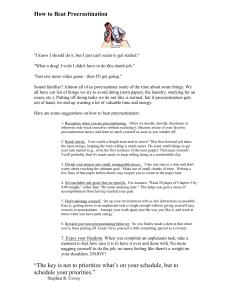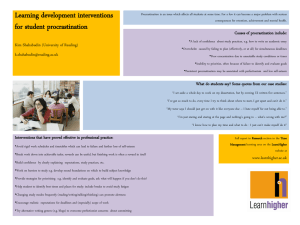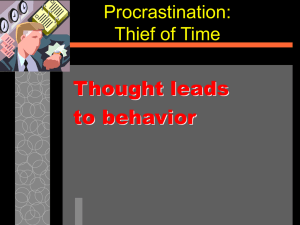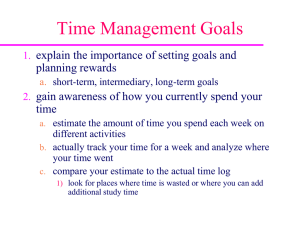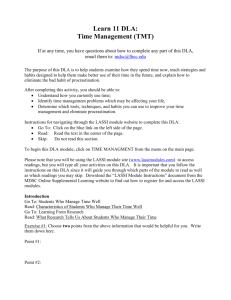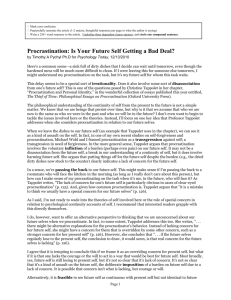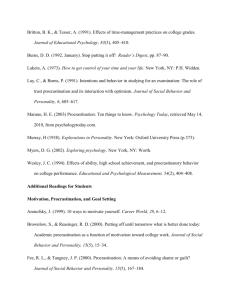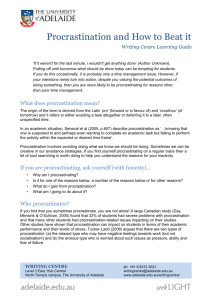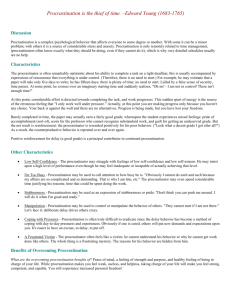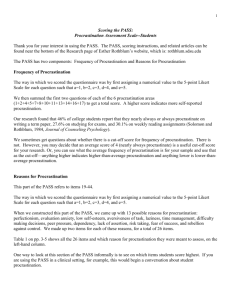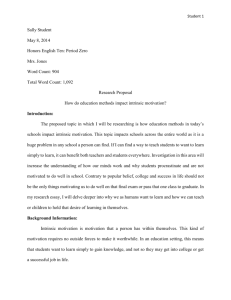What is motivation?
advertisement
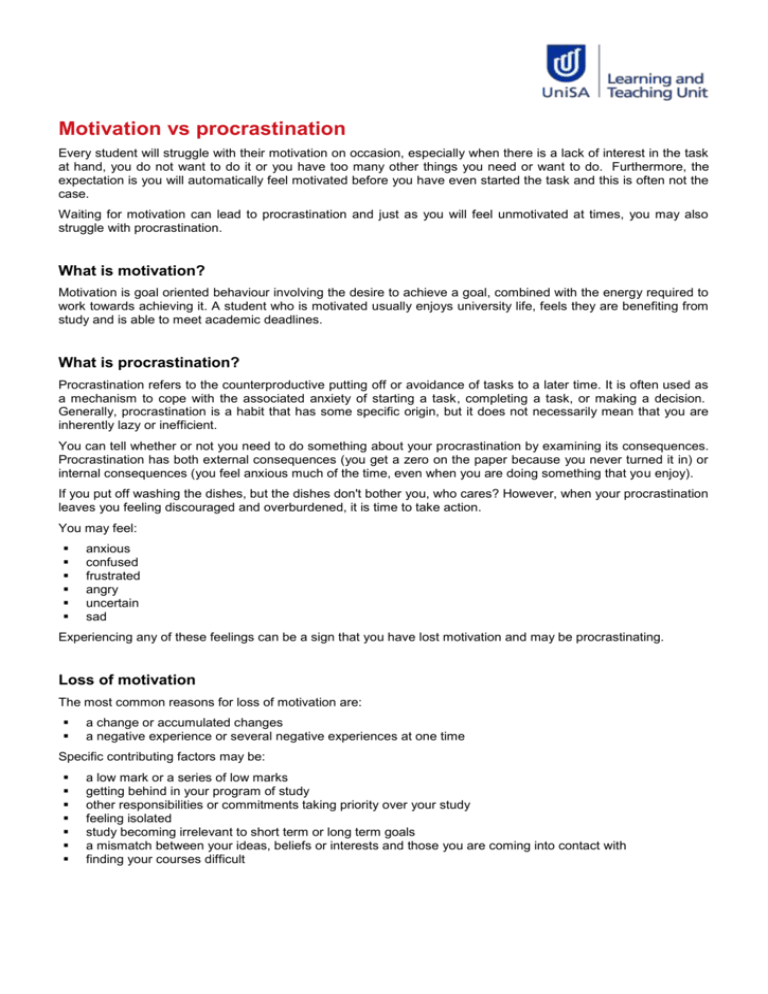
Motivation vs procrastination Every student will struggle with their motivation on occasion, especially when there is a lack of interest in the task at hand, you do not want to do it or you have too many other things you need or want to do. Furthermore, the expectation is you will automatically feel motivated before you have even started the task and this is often not the case. Waiting for motivation can lead to procrastination and just as you will feel unmotivated at times, you may also struggle with procrastination. What is motivation? Motivation is goal oriented behaviour involving the desire to achieve a goal, combined with the energy required to work towards achieving it. A student who is motivated usually enjoys university life, feels they are benefiting from study and is able to meet academic deadlines. What is procrastination? Procrastination refers to the counterproductive putting off or avoidance of tasks to a later time. It is often used as a mechanism to cope with the associated anxiety of starting a task, completing a task, or making a decision. Generally, procrastination is a habit that has some specific origin, but it does not necessarily mean that you are inherently lazy or inefficient. You can tell whether or not you need to do something about your procrastination by examining its consequences. Procrastination has both external consequences (you get a zero on the paper because you never turned it in) or internal consequences (you feel anxious much of the time, even when you are doing something that you enjoy). If you put off washing the dishes, but the dishes don't bother you, who cares? However, when your procrastination leaves you feeling discouraged and overburdened, it is time to take action. You may feel: anxious confused frustrated angry uncertain sad Experiencing any of these feelings can be a sign that you have lost motivation and may be procrastinating. Loss of motivation The most common reasons for loss of motivation are: a change or accumulated changes a negative experience or several negative experiences at one time Specific contributing factors may be: a low mark or a series of low marks getting behind in your program of study other responsibilities or commitments taking priority over your study feeling isolated study becoming irrelevant to short term or long term goals a mismatch between your ideas, beliefs or interests and those you are coming into contact with finding your courses difficult Strategies to improve your motivation and avoid procrastination 1. 2. 3. 4. 5. 6. 7. 8. 9. 10. Set realistic goals Make study a priority by creating a place where you can study without distractions Create a schedule and/or lists Break the task into smaller pieces Allocate more time than you think you will need Take regular breaks Use instant rewards to acknowledge your achievements Take care of your health and well-being Focus your thoughts to the present, rather than the past and future Just do it! If you require further assistance, please make an appointment with a counsellor in the Learning and Teaching Unit on your campus.
